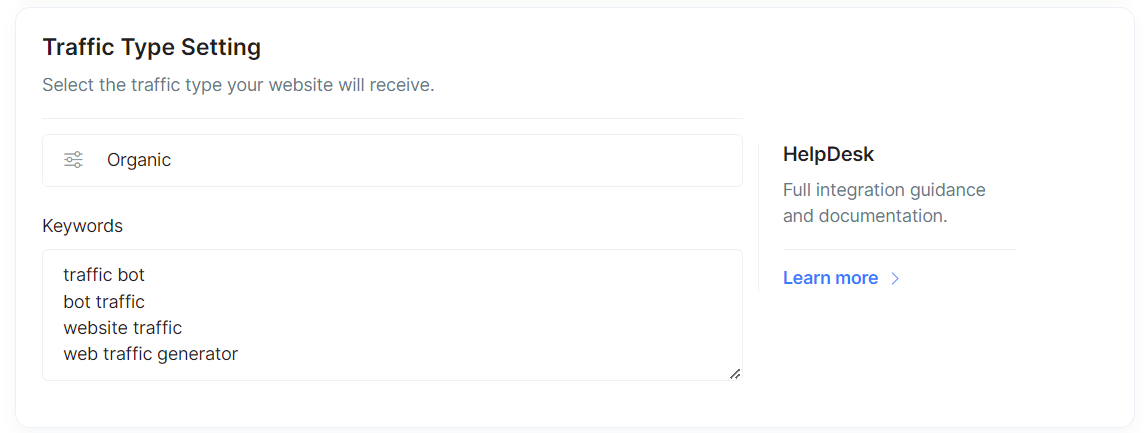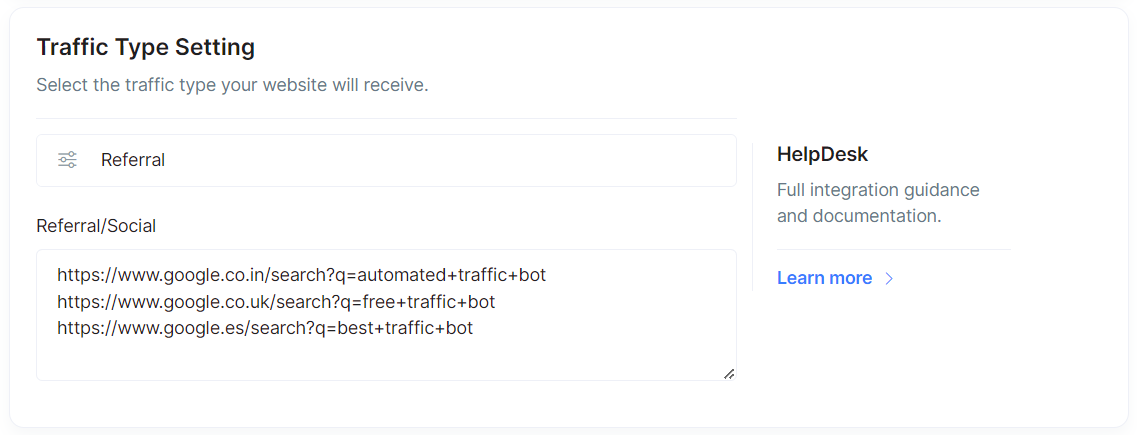Maximizing Your Website's Potential with Organic Traffic
Martin Freiwald
Sept 28, 2023
7 min read
Introduction
Organic traffic is the lifeblood of any website aiming for long-term success. Unlike paid traffic, organic visitors find your site through unpaid search engine results, making them a cost-effective way to boost your online presence. This article will guide you through the nuances of organic traffic and how to set it up effectively.
What is Organic Traffic?
Organic traffic refers to visitors who discover your website through unpaid search engine results. These users typically enter keywords related to your content or products in search engines like Google or Bing. The search engine algorithms then display your website in the search results, leading to a visit.
The Importance of Organic Traffic
Organic traffic is highly valued as it consists of targeted users actively seeking the information or products your website provides. These users are more likely to engage with your content and convert it into customers. Unlike paid traffic, organic traffic is not reliant on advertising spend, making it a cost-effective way to increase your site's visibility and customer base.
Search Engine Optimization (SEO) is crucial in increasing organic traffic. It involves improving the visibility of your website in search engine results through various methods such as keyword optimization, quality content creation, and link building.
Setting Up Organic Traffic
One of the key strategies to generate organic traffic is through effective keyword configuration. Here's a quick guide on how to set up organic website traffic in your project's settings:
Open your traffic project and navigate to the setting labeled "Traffic Type".
Change the default "Traffic Type" setting from direct to organic.
Now, you can enter your target keywords in the "Keywords" field. Remember to enter only one keyword per line, and avoid using symbols to separate your keywords.

Example Organic Traffic Settings
The above settings will enable your website to generate organic traffic, which will be visible on Google Analytics.
Advanced Organic Traffic Settings
While this approach may require a bit more time for initial setup, it offers several benefits worth considering. To activate these advanced settings, go to your project's settings and select 'Referral' as the traffic type. Be aware that combining referral, social, or organic traffic with direct traffic is not an option within a single project.
- Incorporate various types of traffic—such as referral, organic, and social—all within a single project.
- Opt for a multi-engine strategy by including Bing and Yahoo alongside Google for generating your organic traffic.
- Utilize geo-specific search engines to boost your local rankings.
International/English Google Search

Local Google Search
Keyword: automated traffic bot | India: https://www.google.co.in/search?q=automated+traffic+bot
Keyword: free traffic bot | United Kingdom: https://www.google.co.uk/search?q=free+traffic+bot
Keyword: best traffic bot | Spain: https://www.google.es/search?q=best+traffic+bot
You can use the same method, if you want the bot traffic to be from Yahoo or almost any other search engine.
Local Yahoo Search

Keyword: automated traffic bot | France: https://fr.search.yahoo.com/search?p=automated+traffic+bot
Keyword: free traffic bot | Germany: https://de.search.yahoo.com/search?p=free+traffic+bot
Keyword: best traffic bot | Poland: https://pl.search.yahoo.com/search?p=best+traffic+bot
Mix Different Traffic Sources
If you want to receive 50% social and 50% organic bot traffic, add the same number of social links as you have added organic search links.
About The Author
Martin Freiwald is the CEO of Traffic Bot, a leading digital marketing agency specializing in driving organic traffic and converting leads into loyal customers. With over a decade of experience in the industry, Martin is passionate about helping businesses grow their online presence and achieve their marketing goals.
An expert in SEO, content marketing, and customer acquisition strategies, Martin has been featured in numerous industry publications and podcasts. He believes in the power of data-driven decision-making and is committed to delivering actionable insights for businesses of all sizes.